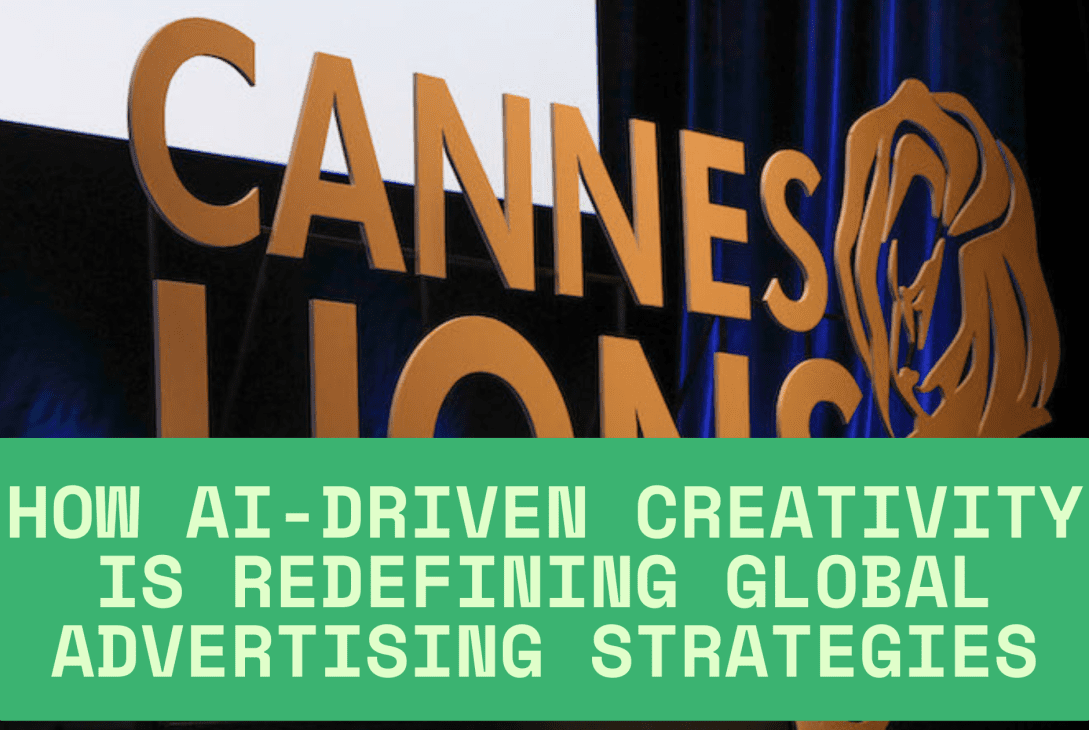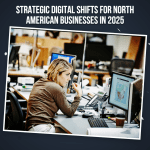How AI-driven creativity is redefining global advertising strategies
Artificial intelligence is no longer a theoretical innovation. It is a functional asset reshaping how global advertising operates across industries. At the 2025 Cannes Lions International Festival of Creativity, the world’s most forward-looking marketers converged to acknowledge one clear trend: AI is now embedded in every layer of campaign development. For business leaders in Canada and the United States, this signals a pivotal moment. AI is not only capable of increasing efficiency, it also supports creative excellence when deployed with intention and structure.
This article outlines how global brands are adopting AI tools in advertising workflows and why North American companies must integrate similar solutions to remain competitive. It also emphasizes the strategic relevance of balancing automation with human insight and outlines practical steps for organizations seeking to align marketing operations with AI advancements.
AI as a creative accelerator, not a replacement
The Cannes Lions Festival highlighted a fundamental shift. Where AI was once viewed as a threat to creativity, it is now recognized as a means to amplify it. Across agencies and in-house teams, AI is streamlining ideation, editing, asset generation, and content optimization. Qualcomm, for example, introduced an AI writing tool that saves approximately 2,400 hours per month. This is not a marginal gain. It reflects how companies can substantially reduce production timelines without sacrificing quality or message control.
Meta’s launch of Advantage+ AI and Video Generation 2.0 demonstrates how automation can enable dynamic, personalized campaign rollouts across diverse platforms, including Instagram, Facebook, and Reels. These tools allow brands to scale ad variants, preserve design consistency, and maintain brand integrity. For mid-market businesses and SMBs, such platforms offer enterprise-grade functionality with accessible learning curves.
Strategic integration across campaign stages
AI’s role in marketing is no longer limited to a single function. It now spans the entire advertising lifecycle, from audience research and segmentation to dynamic creative optimization and post-campaign analytics. According to industry leaders at Cannes, AI orchestration allows faster deployment and more rigorous testing, which in turn drives higher ROI.
For example, Meta’s AI tools allow instant generation of thousands of content variations, enabling adaptive testing across demographic segments. The backend algorithms monitor performance and allocate budget in real time. Early adopters have reported up to 22 percent increases in return on ad spend and 5 percent improvements in conversion rates. These metrics reflect an environment where agility and precision are paramount. AI provides both.
Preserving human insight in an automated system
Despite the operational efficiencies AI offers, leading organizations are emphasizing the importance of maintaining human oversight. The most celebrated campaigns at Cannes were not fully automated. They blended AI with lived experience, cultural fluency, and strategic narrative building.
Mindshare and Dove’s “Real Beauty Redefined” campaign exemplifies how AI can be recalibrated to align with brand ethics and social values. In this case, AI models were retrained to reflect authentic beauty standards, demonstrating how businesses can use these tools responsibly. Similarly, Vaseline’s “Verified” campaign used AI to detect misinformation while building credibility among healthcare content creators.
Such examples reinforce that while AI can handle scale and speed, human creative leadership remains critical. The future of advertising is not AI-driven by default, but AI-enabled under human direction.
Implications for North American business leaders
In both Canada and the United States, companies are under increasing pressure to deliver more personalized, data-informed content across multiple channels, while maintaining strict cost control. AI offers a framework to meet these goals, particularly in industries like retail, healthcare, real estate, and professional services.
For decision-makers evaluating AI integration, consider the following strategic priorities:
- Operational efficiency: AI reduces the manual burden of repetitive tasks, enabling teams to focus on strategic planning and innovation.
- Creative scalability: Content variants can be generated and refined at a volume and speed unachievable by human teams alone.
- Audience targeting: AI analytics can interpret complex customer behavior patterns, allowing for precision targeting and personalization at scale.
- Brand governance: Automation tools can enforce design and messaging consistency across platforms, minimizing risk of dilution.
Actionable steps for implementation
Adopting AI into marketing does not require a full digital overhaul. Instead, it demands a phased, strategic approach aligned with business objectives. Key actions include:
- Assess workflow gaps
Identify bottlenecks in current creative and campaign processes. Look for areas where automation can improve speed or output quality. - Select platform partners
Evaluate AI tools that integrate with your existing stack. Focus on platforms with robust support, transparent data policies, and proven performance metrics. - Train internal teams
Equip staff with the skills necessary to use AI tools effectively. This includes creative teams, data analysts, and campaign managers. - Monitor compliance and ethics
Ensure your AI implementation follows relevant data regulations and internal brand values. Consider AI governance frameworks to manage risk. - Iterate and optimize
AI systems improve through iteration. Use pilot programs to gather data, evaluate performance, and scale gradually.
AI in advertising: a long-term strategic asset
Looking ahead, AI is expected to become a standard layer within the marketing technology stack. As cloud computing, data infrastructure, and machine learning models mature, the cost and complexity of adopting AI will continue to decline. Early movers will benefit from a steeper learning curve, deeper insight, and operational resilience.
For business leaders in North America, the opportunity is not simply to match global competitors but to surpass them by combining AI-enabled efficiencies with culturally attuned, locally relevant storytelling.
Conclusion: a new era of marketing excellence
The Cannes Lions 2025 festival underscored a critical truth. Artificial intelligence is not replacing creativity, it is restructuring how creativity is delivered, scaled, and measured. Businesses that embrace this transformation strategically will achieve both performance gains and brand differentiation.
For leaders in Canada and the United States, the decision to integrate AI into advertising workflows is not one of convenience. It is a matter of relevance. As the global marketing ecosystem accelerates, AI represents not just a competitive advantage, but a foundational requirement for sustained success.









